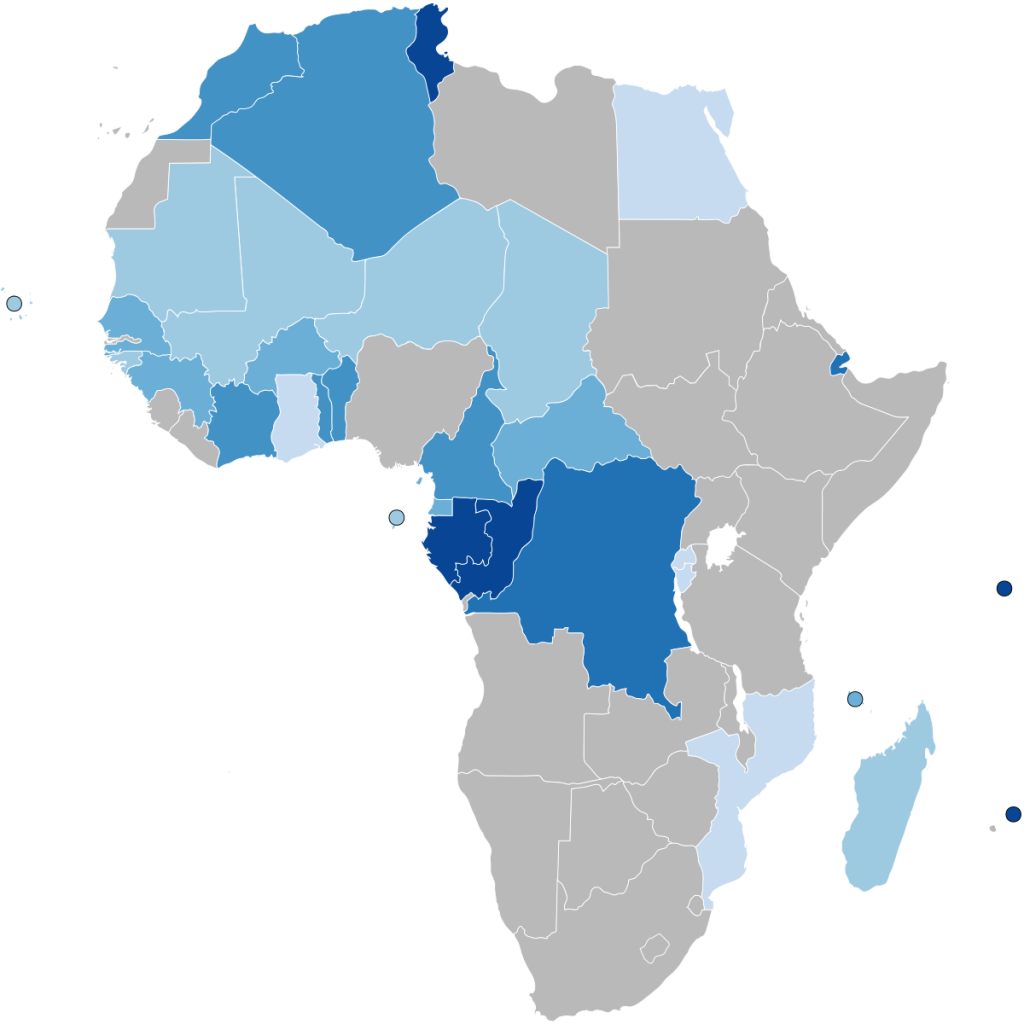There are 19 French-speaking countries in Sub-Saharan Africa.
According to a recent report, the region’s technological potential is failing to reach the desired level due to a significant lack of coordination and cohesion among key innovation stakeholders.
The study conducted by Ernst & Young (EY) indicates that these countries operate within fragmented ecosystems, where weak governance and insufficient collaboration hinder technological progress.
The report identifies three main barriers to cooperation: a limited culture of collaboration (73%), a lack of information-sharing platforms such as forums and networks (62%), and the absence of a shared vision and coordination mechanisms (57%).
These gaps result in scattered initiatives and reduce the collective impact of innovation efforts across the region.
Countries such as Guinea, the Democratic Republic of Congo, Burundi, Mauritania, and Niger rank among those with the weakest cohesion.
Even in more advanced ecosystems like Senegal, Côte d’Ivoire, Benin, and Djibouti, more than one-third of stakeholders report weak cooperation and the lack of a shared vision. This shows that challenges persist even where digital strategies and governance structures are stronger.
To address these issues, the report recommends promoting sustained collaboration and establishing shared governance frameworks.
Increasing local demand for technology in key sectors such as health, education, and public administration; creating targeted public funds; and strengthening networks of tech hubs and incubators play a crucial role in this process.



